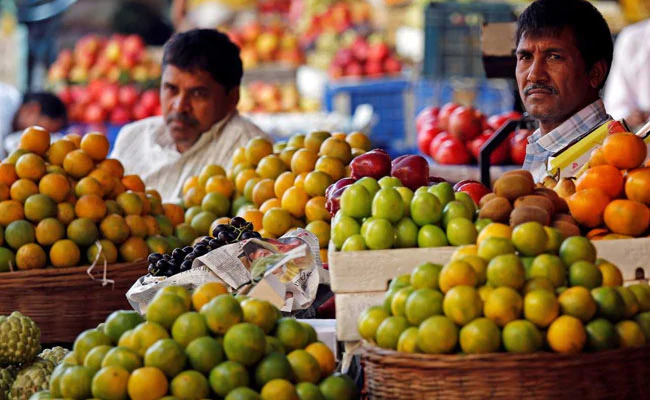Consumer Inflation Eases To 16-Month Low At 4.06%, Food Prices Slump

[ad_1]
Retail Inflation: The Reserve Bank tracks consumer inflation for formulating its monetary policy
Consumer price inflation in the country eased to 4.06 per cent in January 2021 from 4.59 per cent in December 2020, amid a sharp decline in food prices. Consumer inflation in January 2021, fell to a 16-month low, according to data released by the ministry of Statistics and Programme Implementation (MoSPI), on Friday, February 12. The annual retail inflation last month was reported as the lowest since September 2019, and below the 4.45 per cent forecast in a Reuters poll of economists. The retail food prices, which comprise nearly half of the country’s inflation basket, increased 1.89 per cent in January from a year earlier, against 3.41 per cent in December 2020.
Consumer Inflation Data, January 2021: All You Need To Know
-
The Reserve Bank of India (RBI) tracks the retail inflation – or the rate of increase in consumer prices as determined by the Consumer Price Index (CPI) – primarily for making changes to its monetary policy. The central bank held its policy rates steady at its last monetary policy meeting on February 5 with an accommodative stance, stating that inflation was expected to remain within the targeted range over the next few quarters.
-
Core inflation, excluding food and fuel costs, was estimated in the range of 5.5 per cent -5.70 per cent for the month by four economists following the inflation data release, close to the level estimated by economists in December 2020. The government does not release official core inflation data. (Also Read: Retail Inflation In January Likely Softened To Lowest Since October 2019: Report )
-
According to analysts poll by news agency Reuters, low inflation is unlikely to lead to an RBI interest rate cut in the next policy announcement but will provide some comfort in keeping the market flushed with liquidity to help the large borrowing programme announced by the government for the next fiscal period.
-
The Reserve Bank of India projected retail inflation at 5.2 per cent for the fourth quarter of the current fiscal, in its recent monetary policy announcement. The average inflation during April-January 2021 continues to remain elevated at 6.4 per cent, which is significantly higher than the inflation target set by the central bank.
-
The food price decline was led by vegetables, which declined by a significant -15.9 per cent year-on-year, while other food commodities such as pulses and cereals fell sequentially. Edible oil prices continued to rise sharply, along with modest gains in fruit and beverages.
-
Despite the easing, persistent double-digit inflation remains in protein items such as meat (12.5 per cent), eggs (12.9 per cent) and pulses (13.3 per cent) coupled with oils (19.7 per cent) and non-alcoholic beverages (13.2 per cent).
-
“Core inflation is perched at 5.70, something that may take more time to move down. Likely pressures in future from escalating oil prices cannot be ruled out. But the more pertinent factor is that the immediate threat of the price level pressures may not be there before the policymakers,” said Dr. Joseph Thomas, Head of Research – Emkay Wealth Management
-
Separate data on Friday showed that factory production, measured by the Index of Industrial Production, grew one per cent in December 2020, led by manufacturing and power sectors. Also, the output of eight core sectors — also known as infrastructural output, contracted by 1.3 per cent in December 2020. (Also Read: Industrial Production Grows 1% In December 2020: All You Need To Know )
-
”The data indicates that some components of core inflation such as transport and communication are on a rise which reflect the potential inflationary pressures in the economy. With the rise in fuel prices, there is a risk of a sustained increase in core inflation amidst the ongoing economic revival. We expect RBI to remain cautious on the inflationary front and accordingly, calibrate its liquidity management policy,” said Suman Chowdhury, Chief Analytical Officer, Acuité Ratings and Research.
-
Meanwhile, the Monetary Policy Committee led by Reserve Bank of India Governor Shaktikanta Das, expects the gross domestic product (GDP) growth to be at 10.5 per cent in the next fiscal year, lower than the projections by Economic Survey and International Monetary Fund. (Also Read: RBI Monetary Policy Highlights: Repo Rate Unchanged, GDP Growth Projected At 10.5% )
[ad_2]
Source link




